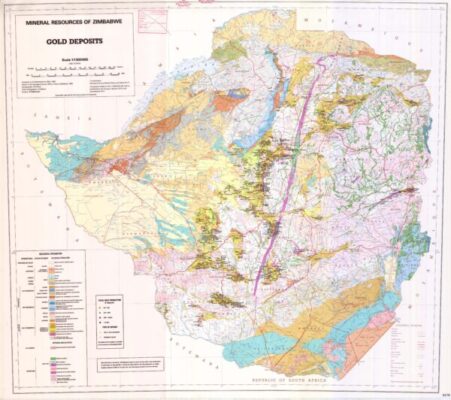Government to Approve a Number of EPOs

The government of Zimbabwe, through the Mines Affairs Board (MAB), will soon announce the approval or rejection of several Exclusive Prospecting Orders (EPOs) as part of its efforts to promote mining growth and development, Mining Zimbabwe has learnt.
By Rudairo Mapuranga
According to the Deputy Minister of Mines and Mining Development, Dr Polite Kambamura, several EPOs have either been approved or rejected, and the Mines Affairs Board will inform the applicants of the outcomes soon.
“EPOs undergo a vetting process, which includes steps such as interviewing the applicant. During this process, EPOs can either be approved or rejected. While some EPOs have been approved or rejected, I cannot disclose them at this time, as it is the duty of the Mines Affairs Board to inform the applicants first, in accordance with the law,” Dr. Kambamura said.
An EPO is a large area of ground designated for the exploration of specific minerals. In Zimbabwe, the maximum size is 65,000 hectares, with the minimum size determined by the company. An EPO’s tenure is three years, with an option for renewal for another three years.
EPOs are used by companies as initial exploration areas. After conducting technical exploration studies, companies may choose to release the EPO ground within three years.
How are EPOs Issued?
Large-scale exploration is conducted under licenses issued by the Head of State and administered by the Mines Affairs Board, as per the provisions of the Mines and Minerals Act [Chapter 12:05]. Two types of titles are issued for large-scale exploration depending on the mineral being explored: Special Grants (SG) for energy minerals such as Coal Bed Methane, natural gas, oil, and uranium, and EPOs for other minerals such as base metals, gold, and diamonds.
Why Are EPOs a Point of Contention?
Stakeholders in the mining industry are urging the government to expedite the approval or rejection of EPO applications. As long as an EPO is gazetted by the government, no miner can operate in the area, and the EPO applicant is also prohibited from exploring. This situation results in the land remaining “frozen” for both the EPO applicant and prospective miners.
“An EPO application freezes exploration ground for both the applicant and small-scale miners. No one can operate in an EPO application area that has been gazetted by the government, leaving the exploration ground frozen and inaccessible. This is counterproductive for the government’s goals,” said Geological Society Chairperson Kennedy Mtetwa.
“Production generally stagnates or declines because potentially mineral-rich exploration grounds that could lead to the development of new mines are not available to interested parties,” Geologist Patrick Takaedza told Mining Zimbabwe.
The Importance of Government Approving EPOs Within a Specific Timeframe
It is crucial for the government to approve EPOs within 12 months of application, as this would free up land for use and potentially lead to the discovery of new mines.
“The government needs to approve EPOs to facilitate exploration, which in turn leads to discoveries and mine development. This benefits both the government and local communities. Once an EPO is gazetted, stakeholder reviews and meetings should be completed within six months. The Ministry of Mines should also conduct proper due diligence on the applicant within 12 months. Therefore, EPOs should be issued or rejected within a 12-month period,” Takaedza said.
According to Mtetwa, Zimbabwe could learn from Australia, where exploration has led to massive gold production of over 300 tonnes per year, while in the 1980s, Australia and Zimbabwe produced similar amounts of gold.
“I have previously mentioned the lack of exploration due to the bureaucracy surrounding the approval of EPOs. Without large-scale exploration, new large-scale mineral deposits cannot be discovered. The CEO of Caledonia has stated that more gold could be discovered if exploration were to occur through the timely granting of EPOs. In the 1980s, Australia and Zimbabwe produced similar amounts of gold, but today Australia produces over 330 tonnes of gold per annum because they have been granting EPOs promptly since 1980, leading to the frequent discovery of world-class deposits. Meanwhile, Zimbabwe produces just 35 tonnes of gold per annum, a tenth of what Australia produces. This clearly shows that the Australian government is serious about growing mineral production; they don’t just talk, they act. In countries like Australia, Canada, Zambia, and Namibia, an EPO must be approved or rejected within six months,” Mtetwa said.
What Should Be Done About EPO Holders Who Do Not Undertake Exploration?
The government has been allowing EPO holders to complete their tenure, and even a second one, without any exploration taking place, leading to companies and individuals holding land for speculative purposes.
The Zimbabwe Miners Federation (ZMF) President, Ms Henrietta Rushwaya, stated that the government should expedite the granting or rejection of EPOs to facilitate production in reserved areas, as many areas where EPOs have neither been accepted nor rejected have remained idle.
She also urged the government to create and implement a policy that would allow small-scale miners to access mining claims held under EPOs for speculative purposes. This would enable artisanal and small-scale miners to peg and operate in areas that are currently inaccessible.
“The issue of EPOs has become a significant problem, as it affects the general populace. The government should be willing to accept or reject EPOs in the shortest possible time. If EPOs are rejected, the government should allow local Zimbabweans who wish to mine to have a moratorium of at least three months to peg and apply for land within the rejected EPO. This would enable local people to peg claims in areas within their communities,” Rushwaya said.


